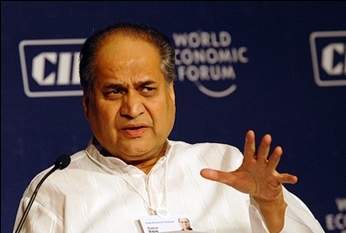Industrialist Rahul Bajaj opined at an event organised by Economic Times recently that the government appeared to be unwilling to accept criticism of its actions and decisions. He said industrialists were in fear of the government and were unwilling to speak out openly on the matter. It was rebutted by Union Home Minister Amit Shah, who was guest at the function along with Finance Minister Nirmala Sitharaman and Rail Minister Piyush Goyal. Shah said industrialists need not fear and that the incumbent government was actually even more open to constructive criticism than its predecessors. He pointed out the fact that Bajaj himself was speaking up openly at an event that was being broadcast by the media in a way proves the point. Such criticism may not sound new, but what Bajaj uttered was absolute truth. To oppose the government of the day is simply asking for trouble. Severe physical reprisals such as being beaten up, murdered as Gauri Lankesh or arrested by police on no charges are but a few instances that have sufficiently terrorised the citizens.
The government has been accused of turning a deaf ear to any disagreement with its ways throughout its tenure in power. It is also true that the same government is also accused of crony capitalism, as it is seen to be favouring a select group of industrialists. Sometime ago, Kiran Mazumdar-Shaw, the chairperson of Biocon, had tweeted to the effect that the government was not working with India Inc to explore solutions to revive consumption and growth and that the government “does not want to hear any criticism of [the] economy”. The concerns are definitely valid from the point of view of an industrialist. However, what Bajaj has done by way of raising his concerns openly with the ministers is to highlight subtly that the government was not really interested to remove the fear psychosis that has been created. The indication that even a top industrialist such as Bajaj was not being heard actually might provide another populist message for this government to give out. But it is the business people who make the economy move. When these segments of the population feel neglected, they tend to move away from constructive activities. While some of the younger entrepreneurs have indeed moved out of this country, others are seriously contemplating migrating to countries such as Portugal to live a better and unfettered life for themselves and for a brighter future for their children. When, gradually, the country is bereft of risk takers, just having a bunch of non-productive politicians and a huge mass of job seekers cannot build a strong modern India. The New India could well turn out as a Terrible India.
Although the government had initially taken seemingly strong stand on matters concerning the industry, all that now appears to be merely window dressing. In due course, the government has tried to show as if it has loosened its purse strings to give industry more room, particularly as it saw its policies misfire and key indicators suffering. The government’s big-ticket reforms have not delivered the desired returns. Its showing with GST collections has been discouraging, and it now faces trouble on multiple fronts with targets slipping. Although the Modi government hoped that the stimuli it has given the industry will help revive growth and demand, proof of the pudding is in the eating. One factor that must be remembered while discussing the given instance is whether the industrialist can substantiate his claim that criticism was not being welcomed even when the acceptance of suggestions could have led to positive outcomes. If the government has failed to accept positive suggestions, it is definitely at fault. Yet it is not difficult to see facts and the present situation clearly indicates, to anyone who cares to observe without any bias, that the government today is intolerant of any form of criticism. Intolerance by authorities creates fear and such an environment will never encourage creation of wealth. In turn, that diminishes possibilities of creating a robust economy and work ethics.
The happy part is that people are already on the lookout for the Next Big Idea. The Modi experiment and whatever it stood for has already been explored. The Ram Janambhoomi Temple is no more a struggle. The hatred incited against minorities has become a reality at every level of society. Torture and killings of women and the helpless have already gained social acceptance (notwithstanding candle marches and superficial outrage). Sucking out the wealth of the common citizen to form a nation of servants, while gaining political edge has been attained. Voice of dissidence has been thwarted. Constitutional institutions, including the judiciary, have been compromised. Article 370 has been abrogated. Pro-crony capitalism laws have been put in place. And the list is not very much longer, but is sort of complete. Now what? When people with short visions and puny agendas hold the steering of a vast society such as that of India, the fall-out is what one is experiencing presently.






































